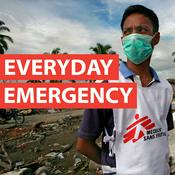Last year in Gaza, MSF assisted in one in three births, supported one in five hospital beds, and provided 800,000 medical consultations. This year, however, our teams have faced the prospect that our operations in the Strip could be forced to close.
In this episode, we talk to nursing activity manager Steve Davidson and field communications officer Nour Alsaqqa: two people with firsthand knowledge of MSF’s work in Gaza, the life-saving impact it’s having, and what would be lost if it couldn’t continue.
Presented by Amber Dowell
Edited by Sandy McKee
Photo: Motassem Abu Aser
Hosted on Acast. See acast.com/privacy for more information.



